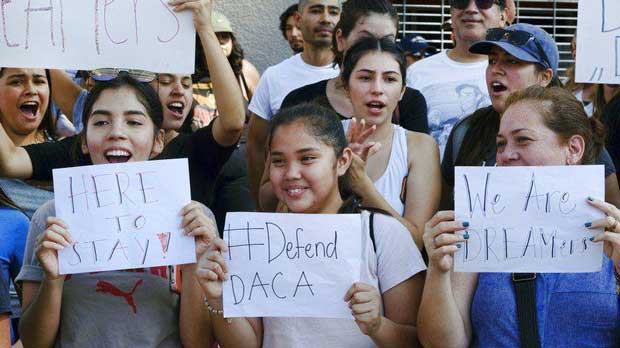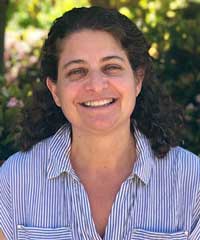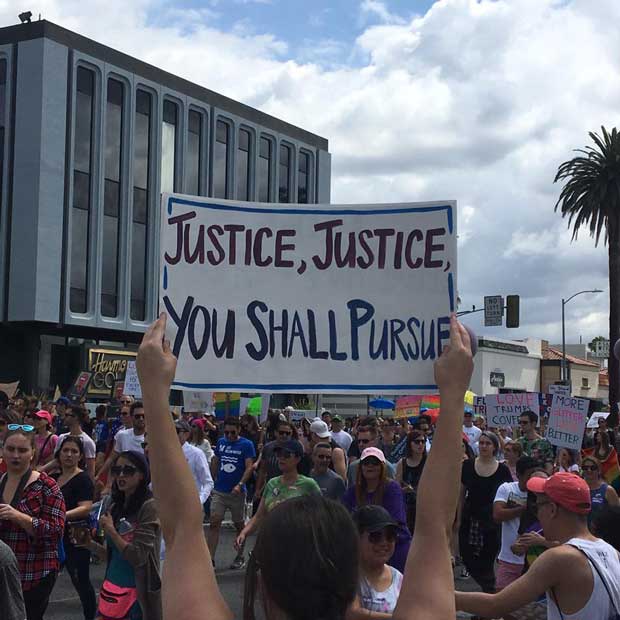
By Alexandra Fradelizio | m/Oppenheim.Org Writer
In 1974, members of the Jewish community in Los Angeles saw a gap in legal services for aging, low-income individuals who were facing eviction and other pressing issues. A group of volunteers that included rabbis and lawyers rented out the storefront of a kazoo shop and assisted residents in saving their homes. As word spread about their services, the community members were surprised to see the vast outpouring of individuals across different backgrounds and ages who desperately needed their help. While many things have changed in the 45 years since that volunteer group was formed, legal aid for the most vulnerable Los Angeles residents remains constant. Bet Tzedek is continuing the mission of its initial volunteers by providing counseling to those facing obstacles.

“We think of ourselves as a gap filler for the community in emergencies, so whenever there is a new crisis and no one else is able to step in and fill the void in assistance, Bet Tzedek thinks of itself as the agency tasked with jumping into the fray and helping those who have nowhere else to turn,” states President & CEO Jessie Kornberg, who first became involved with the organization when she volunteered as a law school student.
Last year, Bet Tzedek served more than 40,000 people

who earned less than $1,500 per month in household income. The organization primarily specializes in elder and disabled law, workers and immigration rights, and other areas of legal defense that impact individuals nationwide. Over the years, Bet Tzedek’s team has guided residents who were involved in pressing social cases, including West Hollywood’s AIDS crisis in the 1980s and the Northridge earthquake in 1994. Ultimately, the organization strongly believes “the law can be used as a tool for social justice,” says Vice President of External Affairs Allison Lee.
The most urgent case currently being addressed by the organization is their litigation challenging Property Assessed Clean Energy (PACE) predatory lending schemes, which target mostly elderly, non-English speaking residents. More than 15,000 individuals are involved in the class-action lawsuit that names authorized Los Angeles County administrators who convinced residents to borrow against their home equity in order to make clean energy improvements. If the lawsuit is not resolved in their favor, explain Kornberg and Lee, the residents will likely become homeless.
Additionally, Bet Tzedek is fighting against low wage violations across the city, which totals to $3 billion annually. Los Angeles claims to have a minimum wage of $15 an hour, but many garment, car wash, warehouse, restaurant, and domestic workers earn $2-3 an hour. Garment workers are especially facing unsafe working conditions, placing them more at risk compared to others.
In order to provide the best legal support to their clients, Bet Tzedek relies on a team of 1,000 volunteers each year. The volunteers, who range from high school and college students to retired judges and attorneys, assist with administrative tasks and provide their expertise on cases. Active lawyers also reserve time in their busy schedules to help Bet Tzedek’s clients free of charge.

Nothing we do could reach the number of people that we serve if we didn’t have incredible volunteers,” says Kornberg.
Despite their successes, Bet Tzedek has faced challenges throughout their history. After the 2008 financial collapse, the organization saw a decrease in donations and government funds, two key sources of their funding. While Bet Tzedek has recovered financially, the number of those who seek legal counsel greatly outweighs the number of active lawyers. For every one attorney available, there are about 8,000 eligible clients who desperately need assistance.
“There is no amount of philanthropy that will equalize that equation,” states Lee.
Regardless of this dire statistic, Bet Tzedek is driving forth its mission, one that has not deviated in its 45 years of existence. In the upcoming years, the organization plans to increase outreach in order to recruit more lawyers and volunteers. However, Kornberg and Lee recognize salaries for legal aid attorneys need to increase in order to compete with government and private law firm jobs.
“We need to be realistic about how you pay someone who changes the world for the better, and we need to do better,” explains Kornberg.
Nevertheless, Bet Tzedek remains committed to bringing justice to Los Angeles, one resident at a time.
Learn more about Bet Tzedek and Donate.
